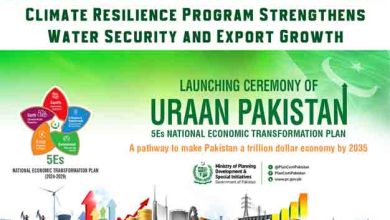Climate ChangeValuing WaterVOW
Pakistan needs $348bn to respond to climate adaptation: Sherry Rehman
Federal Minister for Climate Change, Senator Sherry Rehman has urged the World Bank to play its role in climate change finance as Pakistan needs 348 billion dollars for climate adaptation and mitigation by 2030.
In her keynote opening remarks at the launch of the World Bank Pakistan Country Climate and Development Report in Islamabad on Friday, she said the country was not among the big carbon emissions emitters, yet it did not have the world’s attention.
The Minister said Pakistan was at the forefront of the most impacted countries due to climate change.
She also added that international organisations and all countries had to find solutions together to combat climate change.







